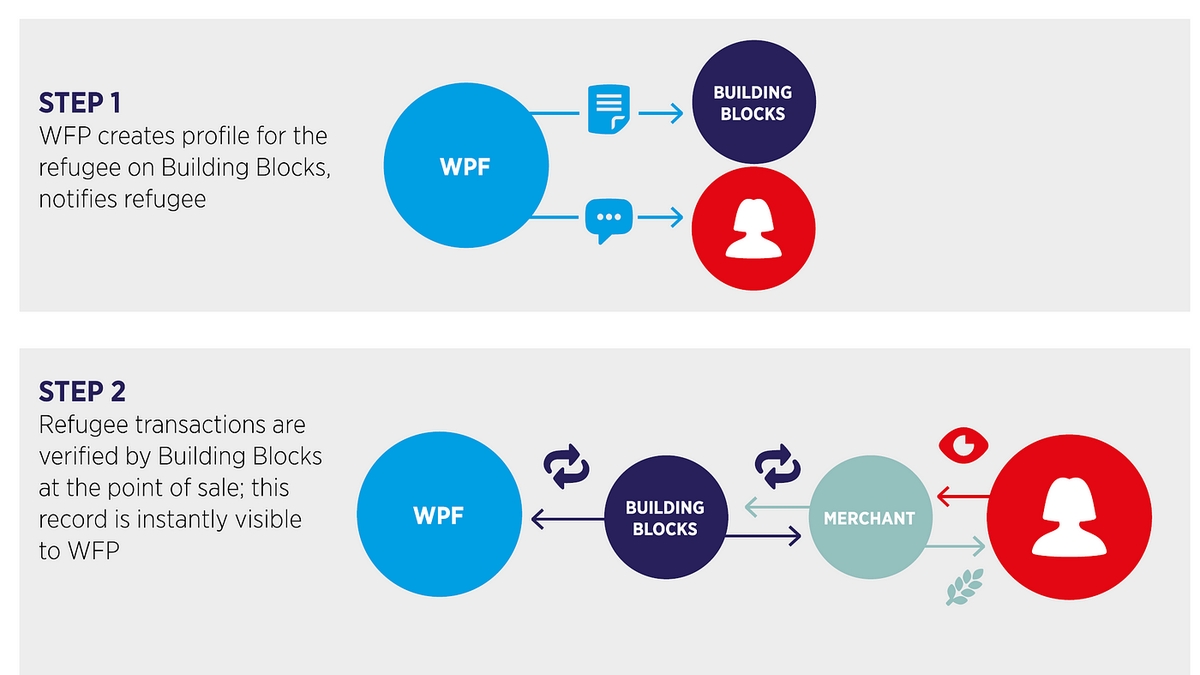The power of blockchain technology extends far beyond the realm of cryptocurrency trading. It encapsulates a vast spectrum of potential applications that can ensure ethical business practices, support humanitarian efforts, and promote transparency and accountability. The adoption of blockchain technology in various sectors is proving to be a game-changer, providing solutions for educational empowerment, facilitating eco-friendly mining practices, and promoting sustainable practices in resource extraction.
Blockchain in Humanitarian Efforts
Blockchain technology is playing an increasingly prominent role in humanitarian relief efforts. It has been instrumental in facilitating global transfers of wealth during crises and managing the disbursement of funds through smart contracts. For instance, the International Rescue Committee (IRC) has partnered with ENS to utilize blockchain technology for humanitarian aid in Gaza, creating a digital identity, ‘irc.eth,’ to facilitate seamless cryptocurrency donations. The collaboration also involves the crypto donation platform Endaoment, allowing for low-cost cryptocurrency donations across multiple chains and traditional assets, making donations tax-deductible.
Moreover, blockchain technology has been used to coordinate aid delivery, legitimizing government processes, and help refugees establish their identities. These initiatives ensure that assistance reaches the intended beneficiaries, thereby improving the efficiency and accountability of humanitarian operations.
Blockchain in Supply Chain Management
Blockchain technology has been utilized to increase traceability and transparency in humanitarian aid delivery, including managing the blood supply chain and ensuring the integrity of medical supplies. For instance, it has been used to monitor the transport of perishable vaccines, thereby reducing waste and ensuring that vaccines reach their intended destinations in good condition. Blockchain’s ability to provide a secure and transparent ledger of transactions makes it an ideal tool for managing the supply chain of medical aid and other critical resources.
Blockchain for Fair Trade and Financial Inclusion
The use of blockchain technology is not limited to humanitarian efforts and supply chain management. It has also been employed to verify fair trade practices in farming and open up financial services to underserved populations. Blockchain technology can validate the legitimacy of fair-trade products, promoting ethical business practices and empowering small-scale farmers.
In the realm of financial services, blockchain can offer decentralized finance platforms that empower vulnerable communities. By breaking down traditional barriers to financial services, blockchain technology can democratize access to these services and promote financial inclusion.
Blockchain for Educational Empowerment
Blockchain technology also holds enormous potential for educational empowerment. It can be used to register academic achievement, providing a secure and verifiable record of an individual’s educational history. This can be particularly beneficial in areas where traditional educational infrastructure is lacking or where individuals may lack formal documentation of their educational achievements.
Conclusion
In conclusion, blockchain technology offers a wide array of applications that can be harnessed for social good. From facilitating humanitarian aid to promoting ethical business practices and educational empowerment, the potential of blockchain technology goes far beyond cryptocurrencies. As more organizations and sectors recognize and harness the power of blockchain, we can expect to see more transparency, accountability, and efficiency in various aspects of global operations.

